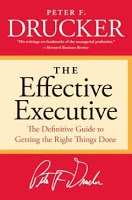There are a number of reasons why I have decided to write this post, not least the number of inbound queries our own agency has received over the years from businesses, unclear regarding types of questions they should be asking to make informed decisions about who to work with moving forward.
The purpose of this post will therefore be to provide impartial advice to businesses on how to go about looking for a web agency.
To help the process of discovery, take a look at the 10 step process
- Search – like many you may use Google search. You may also look for referrals based on websites you admire or reach out through your connections in the digital space via platforms such as Linkedin
- Discovery – what are your first impressions of the agency website? Is the design nice and is the website responsive, functioning well across your tablet and mobile device?
- Credentials – have the agencies discovered completed any projects for companies in your industry? Maybe they have but these aren’t featured in their portfolio. Have they worked with any recognised brands and have these been well represented?
- Criteria – look to define initial goals for your website, beyond just the visual design. There is far more to a website than the look and feel. Be clear when setting your criteria and objectives
- Experience – how established are the agencies you are looking at? – take time to view the “about us” area. The longer the agency has been established in a highly competitive marketplace (such as London for example), the more reassured you should feel about their prowess as a web agency
- Services – as you have an idea of your business’s requirements, can the agencies discovered potentially fulfil them? Do they deliver beyond design, offering other elements such as branding and optimisation services sought? Are you prepared to split your process out between multiple agencies?
- Brief – outline in as much detail and depth what it is exactly that your business is looking for. If you are unsure, reference some guides. Briefs should typically introduce your company, provide project objectives, your target audience, competitors, project deliverables desired, integrations required, info on your current hosting environment, desired project timelines and a range for your budget
- Questions – how does your team work? Do you partner or outsource website development? Will my project be project managed? What steps will you take to understand my website users and provide optimal user experience (UX) on my website? How will UX benefit my digital marketing efforts beyond website launch?
- T&Cs – when you discover an agency it is important to understand the terms and conditions. Can your business meet the agency’s conditions?
- Contact –follow steps 1-6 above to target and do you research before making contact. By contacting every agency you find with little research achieved you risk wasting time and confusing yourself from the broad range of responses received. Pick a handful of agencies to contact
Whilst the information about the discovery process will help you to work through the process of defining your goals and selection criteria, also consider the following five points
- Lack of suitability – as you look to define the most suitable agencies, respectable agencies will also look to screen your business and to assess suitability of projects based on your expectations. You may be turned away if there is no movement on your budget which may not sit near the agency’s starting rate to cover their own overheads. It is important for an agency to be upfront, clear and honest about whether there is scope to work together
- Fixed or low costs – no business is the same and requirements will always vary dependant on the scope of projects, the functionality required and any development in addition to design. Time is money, not just to you but to all agencies too, so most agencies will tend to cost based on hours spent on your project. If your website is (for example) a multi-language domain with multiple country sites and you have been quoted a couple of thousand pounds, be wary! You may either achieve a job half done, or expect to sign off on increased costs going forward with no forewarning. If the cheap rate proposed sounds too good to be true it probably is, and you may come across agencies looking to jump at the chance to work together without considering ramifications. Read this post on why a well structured, UX design project is not cheap.
- Lack of project management – is your agency planning a collaborative approach, sharing their roadmap, showing full transparency and allowing for your input? Are they setting enough time aside to garner information from your stakeholders, both your users and those involved in the project?
- No UX process – what time has the agency taken to understand your users, their behaviour or to address any current issues you experience that made you decide to start this process and adopt a new website? Think about hoovers such as the Dyson (easy to use, minus the hoover bag) compared to high maintenance models of the past, requiring costly callouts to an engineer to fix simple problems? Which is more user friendly and would you be prepared to pay a little extra so that it functions, is easy to maintain and puts a smile on your face?
- Lack of interest – how much interest is your contact at the agency showing in your business. Are they trying to dig deeper to understand your brief, your business and the story behind the issues you are experiencing? Are they asking about you and your role, how that fits within the organisation and what role you will play throughout the project?
In summary
Finding a new web agency can often be a daunting task, especially with such a broad selection of digital agencies available to choose from. By following the points within this post and investing the time and money with a suitable choice, you can make a real difference to the success of your business.
This post originally appeared here
Digital & Social Articles on Business 2 Community(19)






